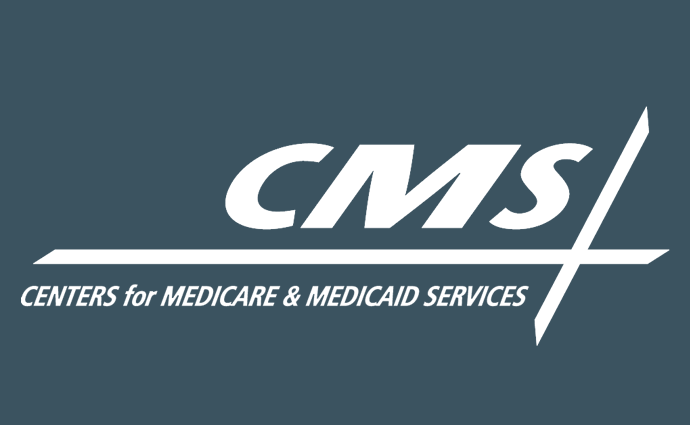CMS Seeks New State Waivers to Boost Individual Insurance Market
CMS is calling for states to establish new state waivers that will decrease individual insurance market costs.

Source: Thinkstock
- CMS is issuing a request for information (RFI) asking states for ideas to develop State Relief and Empowerment Waivers to reduce costs in the individual insurance market.
In a recent blog post, CMS Administrator Seema Verma noted that individual insurance markets have been struggling since the Affordable Care Act’s main requirements were implemented in 2014.
“Premiums have doubled and even tripled in some states,” she wrote.
“Insurers began abandoning state and regional markets leaving large portions of the country with only a single insurer, and insurers are increasingly focused on offering narrow provider networks to contain premium growth.”
To improve individual insurance markets, CMS and the Department of the Treasury are asking for more ideas on innovative programs and waiver concepts that are tailored for specific states.
READ MORE: Individual Insurance Premiums to Soar Without Policy Actions
“States are the laboratories of innovation and policy reform where new ideas can be tested and, when proven successful, can serve as national models,” she said.
“State leaders are also closer to their residents and better understand the problems they face each day, and this gives states the knowledge and the motivation necessary to take action and make the tough policy decisions needed. Importantly, State Relief and Empowerment Waivers provide an opportunity for states to get back in the driver’s seat.”
CMS recently held a meeting in Washington, DC to connect with more than a dozen states and other stakeholders on a national level. The meeting focused on how states can use State Relief and Empowerment Waivers to innovate their markets. To help states with this process, CMS intends to build a library of options, made up of more waiver concepts.
In this RFI, CMS is specifically seeking ideas for additional waiver concepts that will help states meet the section 1332 requirements. These could include waiver concepts that states could use alone or in combination with other waiver concepts, policy changes, or state proposals; as well as waiver concepts that incorporate the entire range of waivable requirements allowed under section 1332.
CMS is also looking for waiver concepts that discuss how states can combine the flexibilities available under 1332 with other flexibilities that exist under federal law, such as regulatory flexibility and Section 1115 Medicaid Waivers.
READ MORE: Planning for Individual Insurance Exchange Stabilization in WA
“Through this RFI, CMS—along with the Department of the Treasury—are asking for more ideas for new programs and waiver concepts for states to consider under a State Relief and Empowerment Waiver plan,” Verma wrote.
“Our hope is that these additional waiver concepts will foster further discussion and spur innovative thinking among states that drive toward real solutions to improve access to affordable coverage for all Americans.”
This RFI will add to CMS’s recent efforts to provide more flexibility to states and encourage innovative thinking.
In October 2018, CMS issued new guidance announcing policy changes that would increase states’ flexibility to waive certain requirements under the ACA. The changes allowed states to submit waivers for health plans with less comprehensive benefits, as long as there is at least one in-state plan that meets ACA requirements.
“Now, states will have a clearer sense of how they can take the lead on making available more insurance options, within the bounds of the Affordable Care Act, that are fiscally sustainable, private sector-driven, and consumer-friendly,” HHS Secretary Alex Azar said at the time.
READ MORE: Revised Tax Policies Needed to Reduce Individual Market Premiums
In addition to this new guidance, CMS released four new waiver concepts that describe how states can take advantage of the policy changes. One of these concepts would establish a defined contribution to an account that individuals would manage and could use to pay health insurance premiums and out-of-pocket costs.
The agency also discussed new flexibilities for states to establish a new state-administered premium subsidy to address problems in the insurance market, and health plan options that could be supported by state subsidies to increase consumer choice and affordability.
Additionally, CMS introduced a waiver concept that would address the costs of high-risk individuals that maintain the same strong protections for people with pre-existing conditions, while reducing premiums for others.
CMS is accepting comments for the new RFI until July 2, 2019. With this RFI, CMS expects to improve costs in the individual health insurance market and allow states to meet the needs of their specific populations.
“By taking advantage of a State Relief and Empowerment Waiver, states can chart a new course toward more affordable health insurance choices,” Verma concluded.
“These waivers give states the power and flexibility to improve their markets through innovative policies that best meet the needs of their residents. I believe in the states’ ability to make innovative decisions to improve the health of their residents and look forward to receiving ideas for other approaches through this process.”
